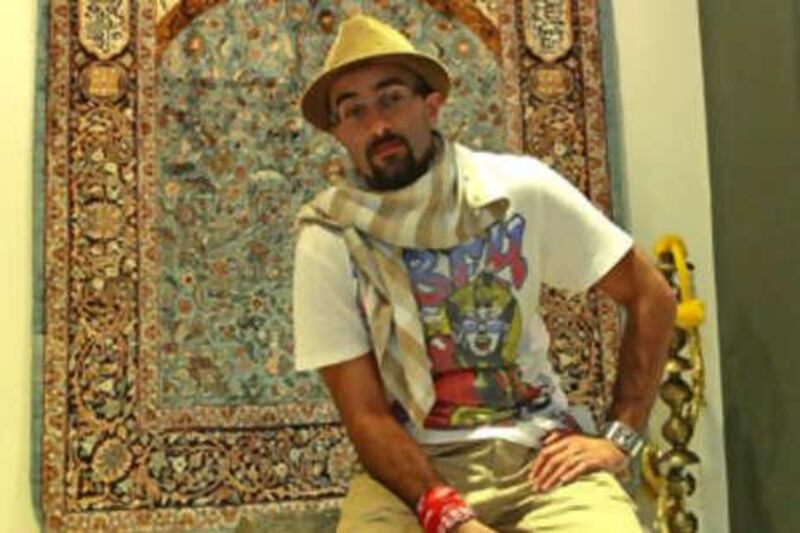DUBAI // An author, actor and hip-hop artist at the heart of modern Arab culture is urging young Muslims to recognise a duty to speak out and challenge stereotypes imposed by the West. Yassin Alsalman, who records under the name The Narcicyst and enjoys popularity in Canada and his native Dubai, counts himself as part of a privileged generation with a rare opportunity to have its voice heard. In Fear of an Arab Planet: The Diatribe of a Dying Tribe, a book addressing Arab and Muslim identity and for which he now seeking a publisher, Alsalman, 26, describes the "constant state of destruction" that has afflicted Iraq, the country of his parents' birth, throughout his life. "This meant my culture and identity have never met their definition," he writes. Educated in Abu Dhabi and Montreal, Alsalman, has recently moved back to the UAE to promote his music, book and a forthcoming film in which he is starring. "I am lucky to be in Dubai right now and to have a platform for my work," he said. "I am lucky that my father emigrated to Canada and I studied political science there. It means I can move back and forth between both worlds and can use my art to say something positive about people like me." Alsalman has released two albums under the name Euphrates, after the Iraq river, and two mix tapes as The Narcicyst. In the book manuscript, which he hopes will appear with an accompanying audio CD, he likens his culture as an Arab and a Muslim to the musical phenomenon of hip-hop, saying both are "under attack". Recording music, he says, is a way of translating events into social messages. "I talk about my own experiences and those of other Arab Americans my overall aim being to show people that we are not terrorists or radical figures of hate, we are just normal people," he says. But he acknowledges that difficulties arise from the competing experiences of his own life. "Watching American rappers on television juxtaposed with news reports from Baghdad," he writes, "I realised that my cultures are at war within themselves." Alsalman makes no attempt to avoid politics. With his mix tape being called Between Iraq and a Hard Placeand the title of his next album P.H.A.T.W.A. the acronym representing either Purposeful Hatred Against The Wrong Arabs or Political Hip-hop Attracting the World's Attention, he considers he is promoting "pro-religion, pro-life and pro-people" ideals. But he is deeply dismayed by the loss of culture in Iraq. "The troops in my motherland secured the oil pipelines but they didn't secure the museums," he says. "Therefore they were looted and much of our history vanished. They also took away children's writing materials. I wanted people to see this side of things as well as the corrupt politics." Unpublished though the book is, Alsalman's writing has already been praised by prominent Arab artists. The introduction was written by Suheir Hammad, a Palestinian-American poet and author, and the choice of a woman was deliberate. "Although my book was written the experiences of young male Arabs, I wanted to include a female point of view and Suheir gives my book that extra dimension," he says. P.H.A.T.W.A.will be released next year and Alsalman hopes to secure distribution in the Middle East. "It is not easy over here as some channels are very limited but you have to keep believing," he says. "As long as the music is powerful and the message is strong then that's all that matters. I know I have done everything I can to stand up for my people. Obviously it would be better if my motherland was not at war and that people's lives were not being destroyed but while it is I am thankful for being in this position and to be able to speak out against it." Alsalman started recording 10 years ago while living in Abu Dhabi. His first track, The Letter, was an audio message to the American government in response to the condition that Iraq was left in after the first Gulf War. It was in Montreal after the September 11 attacks that Alsalman sensed the importance of his role as an artist. "There were so many misconceptions about Arabs being portrayed in the media and in public channels that I saw it as my duty to speak about what people of my age and my culture were really going through," he says. "I had to temper the anger of my early music and make music that people could relate to on a human level. aseaman@thenational.ae
Rapper stands up for Arab viewpoint
Yassin Alsalman wants to right injustice and distorted perceptions through his music.

Editor's picks
More from the national





